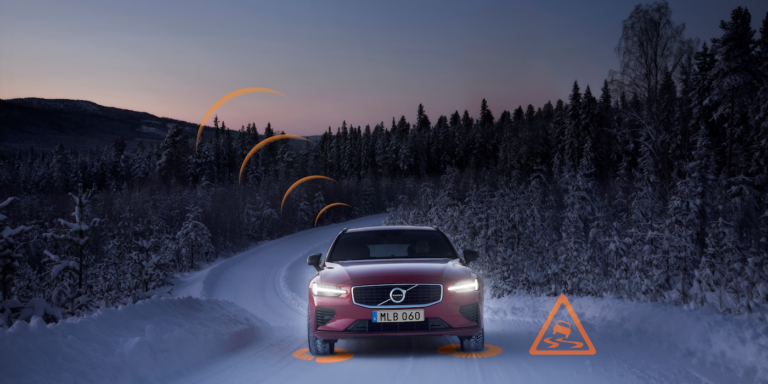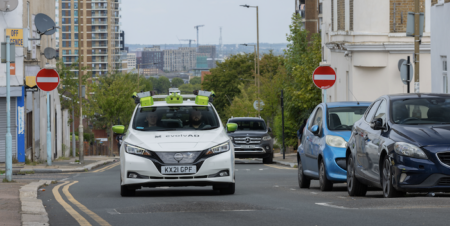Volvo Cars is launching an industry-first connected safety technology across Europe that will enable Volvo cars to communicate with each other and alert drivers of nearby slippery road conditions and hazards via a cloud-based network. By alerting drivers to dangers ahead in a timely manner and allowing them to adapt with time to spare, connected safety technologies can support better driver behavior and boost traffic safety.
The systems – named Hazard Light Alert and Slippery Road Alert – were first introduced in 2016 on Volvo’s 90 series cars in Sweden and Norway, but are now available to Volvo drivers across Europe. The systems are now standard on all new model year 2020 Volvos and can be retrofitted on earlier models that are based on the company’s Scalable Product Architecture (SPA) or Compact Modular Architecture (CMA) platforms from model year 2016 and onwards.
“Sharing real-time safety data between cars can help avoid accidents,” said Malin Ekholm, Head of the Volvo Cars Safety Centre. “Volvo owners directly contribute to making roads safer for other drivers that enable the feature, while they also benefit from early warnings to potentially dangerous conditions ahead.”
Volvo wants the technology to grow, and is invitating the car industry to join it in sharing anonymized data related to traffic safety across car brands. Sharing such data in real time can improve overall traffic safety and become more influential the more cars are connected.
“The more vehicles we have sharing safety data in real time, the safer our roads become. We hope to establish more collaborations with partners who share our commitment to safety,” added Ekholm.
How it works
As soon as any equipped Volvo switches on its hazard lights, the Hazard Light Alert sends a signal to all nearby Volvo cars connected to the cloud service, warning drivers to help avoid potential accidents. This is particularly useful on blind corners and over the crest of hills in the road.
Meanwhile, Slippery Road Alert increases the driver’s awareness of both current road conditions and those on the road ahead by anonymously collecting road surface information from cars farther ahead on the road and warning drivers approaching a slippery road section in advance.
This release builds on recent Volvo Cars safety-focused announcements, such as its intention to limit all Volvos to 112mph (180kph) from 2020, and from the early 2020s, to also install in-car cameras and other sensors that monitor the driver and allow the car to intervene if a clearly intoxicated or distracted driver is risking an accident involving serious injury or death.
Volvo Cars has also announced that, for the first time, it is making its safety knowledge easily accessible in a central digital library, which it urges the car industry to use in the interest of safer roads for all.





